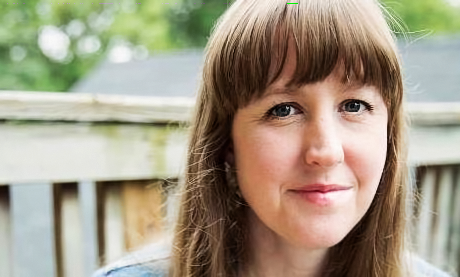Recently, my family and closest friends gathered for my son’s baptism.
We were joined by our larger church community, people we’re connected to in varying degrees, some of whom we embrace upon greeting, others whose hands we clasp briefly with a single word–peace–only once a week.
Even my husband’s parents, unable to make the trip, were present.
My son’s uncle, the baby’s godfather, set up a video call and tucked his phone in his pocket so they were able to witness the splashing of holy water and joyful singing even 1,700 miles away.
We laid hands on my son and prayed.
We passed him around, parent to godparent to grandparent, and so on.
One by one, the entire community traced the sign of the cross with their thumbs on his forehead and heart, welcoming him into the fold, naming him one of us.
It was more than I could have hoped for.
And yet, it was everything I’ve imagined: a community for my son to grow up in, extended and close, near and far.
After church-shopping for a decade, his birth made it more urgent than ever to just pick a place.
Once we did, in order to strengthen our bonds with the parish, we set plans in motion for baptism.
Children are a wonderful and rewarding way to hold yourself accountable to good intentions.
As we planned his baptism, I thought about how rare it is to see the experience of community reflected back at us in pop culture, at least in any meaningful way.
More often than not, religion and communities of faith are misrepresented, or worse, caricatured, to be passed over as jokes or annoying obligations with which protagonists must contend.
Religion is almost never shown for one of the most profound experiences it offers its adherents: community.
In one of my favorite shows, Gilmore Girls (WB/CW), which ran for seven seasons and is earning scores of new fans on Netflix, Rory Gilmore’s best friend, Lane Kim, is a Seventh Day Adventist with an ultra-strict mother who won’t allow her to listen to rock music or eat junk food.
Lane, of course, loves both.
The friends spend much of their time plotting how to get around Mrs. Kim’s rules.
While Mrs. Kim’s faith demands might seem arcane and even laughable, it’s not hard to imagine that for her, a single parent and immigrant, her faith community provides a support system.
In Netflix drama Orange Is the New Black, Tiffany Doggett, aka “Pennsatucky,” is a character whose faith is portrayed negatively.
AsReligion & Politics writer Xarissa Holdaway says, “Incarcerated Pennsatucky spouts scripture, tries faith-healing on her fellow inmates, and collapses the chapel ceiling by hanging an enormous, against-the-rules handmade cross from a flimsy beam. She’s emotionally unstable, she threatens and punishes other inmates, and she’s ignorant, racist, and homophobic.” Continue reading
Sources:
- Meghan Murphy-Gill is a writer living in Chicago.
- Image: Twitter
News category: Analysis and Comment.




